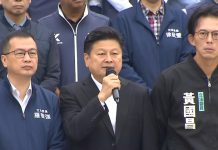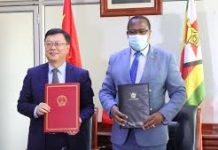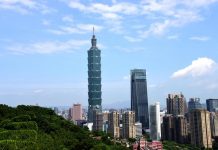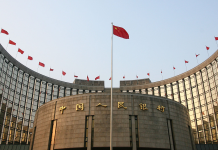——– Interior Minister says those involved in Besham incident will not be spared
By Asghar Ali Mubarak
ISLAMABAD: Chinese Ambassador Jiang Zedong on Thursday called on Interior Minister Mohsin Naqvi to discuss arrangements for Prime Minister Shehbaz Sharif’s upcoming visit to China.
Mohsin Naqvi welcomed the Chinese ambassador to the ministry. The ambassador congratulated Naqvi on assuming the portfolio of the Ministry of Interior. In the meeting, discussions were held regarding the preparations for the visit of the prime minister of Pakistan to China and the security of Chinese citizens across Pakistan. The meeting also discussed the progress of the Besham incident. Naqvi said the incident was an attack on Pakistan-China friendship and the elements involved in it would be brought to a terrible end in any case.
He told the ambassador that new SOPs needed to be made for the security of Chinese citizens across Pakistan and strict implementation of SOPs was being ensured. He said he visited the Chinese Consulate in Lahore and Karachi and met the consul generals. The Chinese consul generals expressed their satisfaction over the security measures taken for the Chinese citizens, said the minister. “Pakistan will not allow any conspiracy to sabotage China’s friendship to succeed,” said Naqvi, adding that the brotherly relationship between Pakistan and China spans decades and the enemy cannot crack these strong ties. Khurram Agha, high officials of the Chinese embassy and other officers were also present. On the other hand, Federal Minister for Planning, Development and Special Initiatives, Prof Ahsan Iqbal said on Thursday that Pakistan and China are fully committed to moving forward with the second phase of the CPEC and the new government through its engagements with the Chinese leadership at senior level is trying to crystallize and define its parameters.
This is our first engagement after the election in Pakistan with Chinese leadership at the senior level. Through this engagement, we are trying to crystallize and define the parameters of CPEC on which the Chinese side has indicated its willingness to move forward. And Pakistan is also very committed to moving forward, he said in his interaction with Chinese media at the Pakistan Embassy, in Beijing during his three-day visit to China.
Prof Ahsan Iqbal said that during his meetings, both sides have discussed some high-priority and low-hanging projects which can be immediately started to give a jumpstart to the second phase of CPEC and broaden the cooperation from phase one to phase two.
He said that agriculture, industrial cooperation, and the transfer of technology are very important for us. We want to expand our cooperation to bring new technology into the agriculture sector to enhance the productivity of Pakistan’s agriculture sector.
Second, we intend to enhance industrial cooperation. Particularly, there is a strong case for relocation of Chinese industries to Pakistan, where labor costs in China have increased and Pakistan offers a very attractive environment for relocation to the SEZs that we are setting up. And that will also help us to move from agricultural economy to industrial economy, he added.
The minister said that one of the key and future goals for us is to take Pakistan from an agricultural economy to an industrial economy as fast as possible. And in this industrialization, we want to focus on exports and how to have export-led growth in Pakistan.
So, China will also help us not only with relocation, but we are also seeking technical assistance that Chinese expertise in terms of developing its own exports and special economic zones that know how we would like to benefit from. There will be more cooperation at the level of experts to help Pakistan develop its exports and special economic zones.
He said that the third area is technology because China has leadership and many new industrial revolution technologies, particularly artificial intelligence as well as IT sectors which are very important.
Pakistan’s IT sector is growing very fast and it could also contribute towards China’s digital programs. Likewise, China’s progress in artificial intelligence is very important because that is the new platform for future and digital economies.
He informed that Pakistan is also preparing its national action plan for the adoption of artificial intelligence, and we will also benefit greatly in this area from China.
Lastly, we also want to expand educational and technical exchange programs. Almost close to 27,000 students are studying in China. China has become a major destination for Pakistani students for higher education.
We would like this cooperation to further expand and also to have greater partnership or twinning arrangements between Pakistani universities and Chinese universities so that they can undertake joint research in Pakistan, he added.
Prof Ahsan Iqbal said that Pakistan also needs to have a greater understanding of Chinese markets. China imports almost 2.7 trillion dollars worth of goods from the world. Pakistan’s share is just a meager 3 billion dollars. I think we can easily expand Pakistan’s market share in China from $3 to $30 billion.






